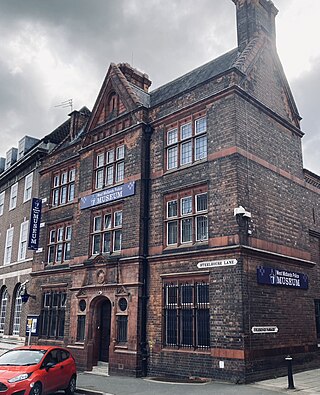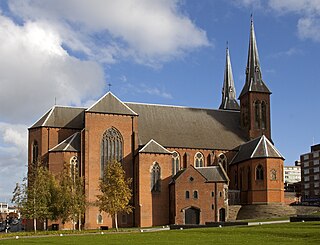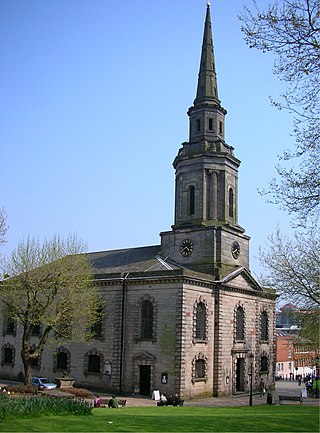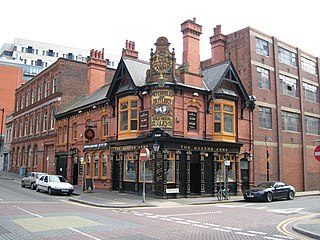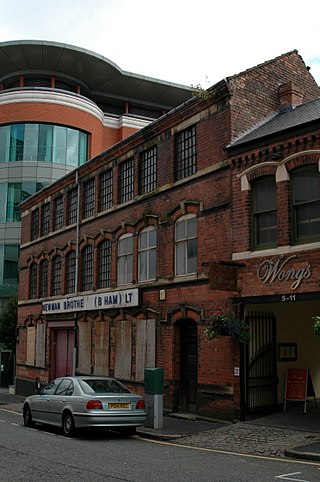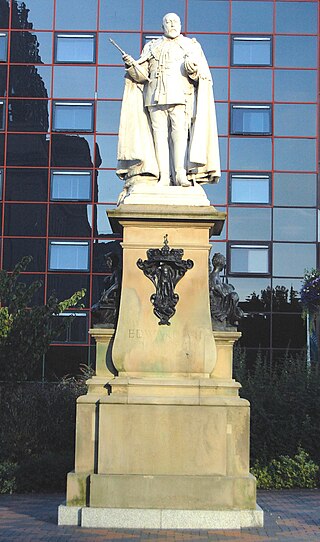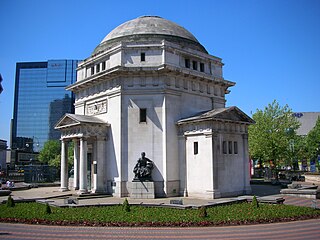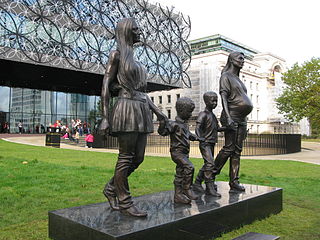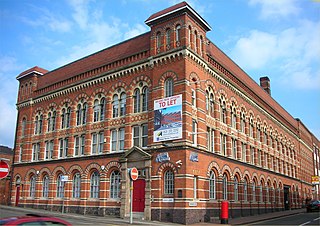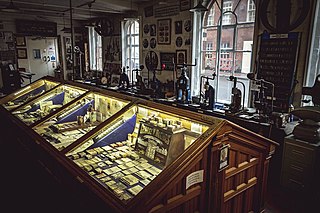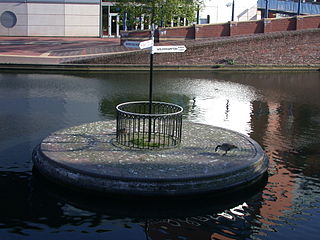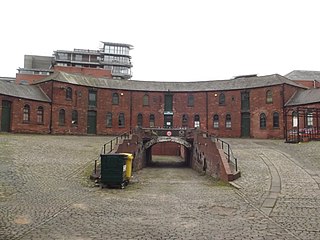Self-guided Sightseeing Tour #5 in Birmingham, United Kingdom
Legend
Tour Facts
5.2 km
119 m
Experience Birmingham in United Kingdom in a whole new way with our free self-guided sightseeing tour. This site not only offers you practical information and insider tips, but also a rich variety of activities and sights you shouldn't miss. Whether you love art and culture, want to explore historical sites or simply want to experience the vibrant atmosphere of a lively city - you'll find everything you need for your personal adventure here.
Activities in BirminghamIndividual Sights in BirminghamSight 1: Methodist Central Hall
Get Ticket*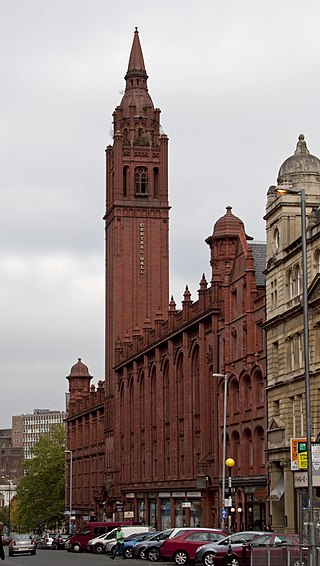
The Methodist Central Hall, 196–224 Corporation Street, Birmingham, England, is a three-storey red brick and terracotta Grade II* listed building with a distinctive tower at the northern end of Corporation Street. The design complements the Victoria Law Courts opposite, also in terracotta, and includes eclectic details such as the corner turrets resembling Indian chattris. It is located within the Steelhouse Conservation Area.
Sight 2: West Midlands Police Museum
The West Midlands Police Museum is located in a Victorian cell block on Steelhouse Lane, Birmingham, England, which was operational from 1891 until 2016.
Sight 3: Victoria Law Courts
Get Ticket*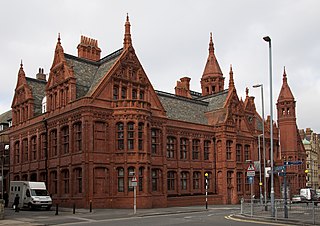
The Victoria Law Courts is a red brick and terracotta judicial building, which accommodates Birmingham Magistrates' Court, on Corporation Street, Birmingham, England. It is a Grade I listed building.
Sight 4: The Metropolitan Cathedral and Basilica of St Chad
The Metropolitan Cathedral Church and Basilica of Saint Chad is a Catholic cathedral in Birmingham, England. It is the mother church of the Archdiocese of Birmingham and is dedicated to Saint Chad of Mercia.
Wikipedia: St Chad's Cathedral, Birmingham (EN), Url, Heritage Website
Sight 5: Syriana
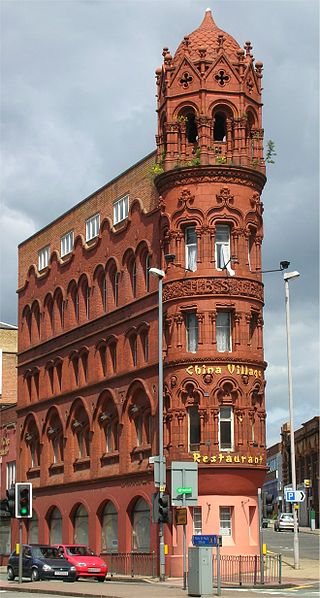
1–7 Constitution Hill in Birmingham, England is a Grade II listed building at the acute junction with Hampton Street, and is a former H.B. Sale factory. The red brick and terracotta structure is extremely thin, with a tower at one end.
Sight 6: Saint Paul's Church
St Paul's is a Church of England church in the Georgian St Paul's Square in the Jewellery Quarter, Birmingham, England.
Sight 7: Queens Arms
The Queen's Arms is a Grade II listed public house in Birmingham, England, built c. 1870. It is noted for the tiled Art Nouveau signage on its exterior, which was remodelled in 1901 to the designs of the architect, Joseph D. Ward for its then owners, Mitchells & Butlers.
Sight 8: Newman Brothers Coffin Furniture Factory
Newman Brothers at The Coffin Works is a museum in the Newman Brothers Coffin Furniture Factory building in the Jewellery Quarter conservation area in Birmingham, England. The museum educates visitors about the social and industrial history of the site, which operated from 1894–1998 as a coffin furniture factory. The museum opened in October 2014 after a fifteen-year campaign by the Birmingham Conservation Trust to save the factory building, which ceased trading in 1998, and raise the funds to transform it into a heritage attraction. Located at 13–15 Fleet Street, the building is Grade II* listed.
Wikipedia: Newman Brothers Coffin Furniture Factory (EN), Opening Hours
Sight 9: King Edward VII
The King Edward VII Memorial is a sculpture in memory of King Edward VII, relocated from Highgate Park to Centenary Square, Birmingham, England.
Sight 10: Hall of Memory
Get Ticket*The Hall of Memory is a war memorial in Centenary Square, Birmingham, England, designed by S. N. Cooke and W. N. Twist. Erected 1922–25 by John Barnsley and Son, it commemorates the 12,320 Birmingham citizens who died in World War I.
Sight 11: A Real Birmingham Family
A Real Birmingham Family is a public artwork and sculpture by Gillian Wearing, cast in bronze, and erected in Centenary Square, outside the Library of Birmingham, England, on 30 October 2014.
Sight 12: Birmingham Rep
Birmingham Repertory Theatre, commonly called Birmingham Rep or just The Rep, is a producing theatre based on Centenary Square in Birmingham, England. Founded by Barry Jackson, it is the longest-established of Britain's building-based theatre companies and one of its most consistently innovative.
Wikipedia: Birmingham Repertory Theatre (EN), Url, Theatricalia
Sight 13: The Argent Centre
The Argent Centre is a Grade II* listed building on the corner of Frederick Street and Legge Road in the Jewellery Quarter of Birmingham, England.
Sight 14: The Pen Museum
The Pen Museum is a museum in Birmingham, England, covering the history of Birmingham's steel pen trade. The only museum in the United Kingdom devoted to the history of the pen making industry, the Pen Museum explains how Birmingham became the centre of the world pen trade.
Sight 15: Orthodox Cathedral of the Dormition of the Theotokos and St. Andreas
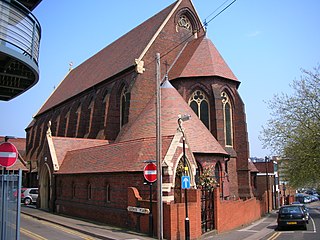
The Cathedral Church of the Dormition of the Mother of God and St. Andrew is a Greek Orthodox cathedral on Summer Hill Terrace in Birmingham, England, dedicated to the Dormition of the Theotokos and St Andreas. In 1958 the first Greek Orthodox Church in Birmingham was inaugurated. Regular liturgies began in Birmingham conducted by the first permanent priest, Father Nicodemos Anagnostou.
Sight 16: Old Turn Junction
Old Turn Junction, or Deep Cutting Junction is a canal junction in Birmingham, England, where the Birmingham and Fazeley Canal meets the Birmingham Canal Navigations Main Line Canal. The junction features a circular island.
Sight 17: The Roundhouse
Get Ticket*The Roundhouse, formerly Corporation Wharf, is a crescent-shaped building located in the city centre of Birmingham, England.
Share
How likely are you to recommend us?
Disclaimer Please be aware of your surroundings and do not enter private property. We are not liable for any damages that occur during the tours.
GPX-Download For navigation apps and GPS devices you can download the tour as a GPX file.
